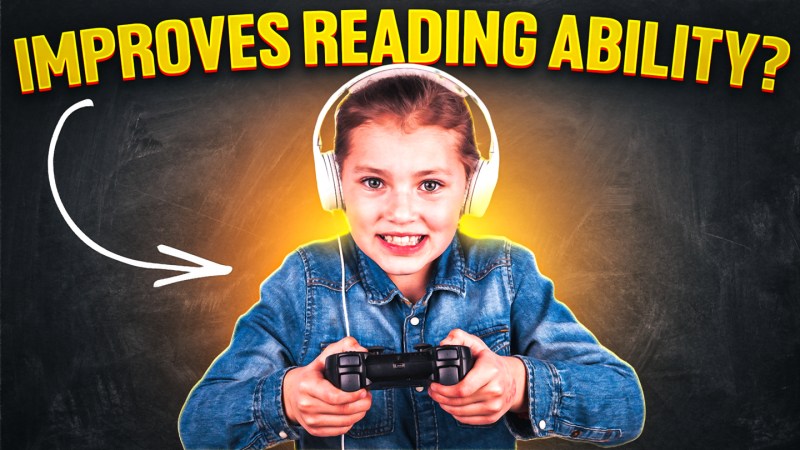
As we all know, video games are often seen as a waste of time or mindless activity. However, research has shown that certain video games can improve cognitive skills such as visual attention, information processing speed, and reading comprehension.
Visual attention is the ability to quickly identify key points and ideas in text. Visual tracking, on the other hand, is the ability to follow a line of text from left to right, top to bottom, and vice versa.
Good visual tracking skills enable readers to comprehend and remember more of what they have read. Games like Fruit Ninja and Space Invaders can help improve these skills. Information processing speed is the rate at which a person can take in and process information. It affects reading by determining how quickly a reader can comprehend and recall information. Games like Halo and World of Warcraft can improve this skill.
Games that flash on-screen text, such as Overwatch and Fortnite, can increase the speed at which a person takes in and processes information. These games can also improve visual tracking skills and help readers become more comfortable with reading.
Finally, there are games that are actually designed to improve vocabulary, fluency, and reading comprehension. Titles like Reader Rabbit and Math Blaster can help young learners develop these crucial language skills.
So, next time someone tells you that playing video games is a waste of time, you can confidently reply that certain games can actually improve cognitive skills that are crucial to success in school and beyond. Want to learn more? Check out the article linked below.
Miranda: "Carla, my son's reading is still so bad. I'm about to lose it. I can't believe it. He's been struggling with reading for years, and no matter how much tutoring he gets, it seems like he's not making any progress. His reading scores are still so low. I'm at my wits' end, and I've decided to take away all of his video games."
Carla: "I understand how you feel, my son struggled with reading too. I remember how frustrated I was. Constantly practicing and then he’d just seem to backslide. He’s so much better now. Loves to read and his grades have improved because of it.
Miranda: What did you do?
Carla: Well, I’ll let you in on a little secret. Video games were part of the secret. So don’t throw out that Xbox just yet.
Miranda: Video Games? How in the world could video games help? All they do is waste his time. He almost seems addicted.
Carla: Well there’s a couple of things. You can get a few different benefits if you use them right.
Miranda: Like How? Sorry Carla, but that seems ridiculous
Carla: Well, first, there's some research that shows that certain video games can help with visual attention. Like, first-person shooter games make you track multiple things at once, so it's like a workout for the brain.
Miranda: Oh that’s interesting. I hadn’t thought of that.
Carla: Yeah, they can build visual tracking skills. Problems in visual tracking can cause reading to be really hard. Letters can even seem to jump around. Then fatigue sets in. Sometimes headaches. And focus goes out the window.
Miranda: Maybe that’s why Jake gets so irritable when he does homework?
Carla: Could be. And there’s more. Well there’s also research that says some video games increase information processing speed. That certainly helps with reading and comprehension too. A kid's brain is doing a lot when they read so you’ve got to help them build all the underlying skills. That helps reading.
Miranda: Interesting. So just I just let him play all the video games he wants? He keeps asking for some game called Naughty Bear. Cute little stuffed animal thing I guess.
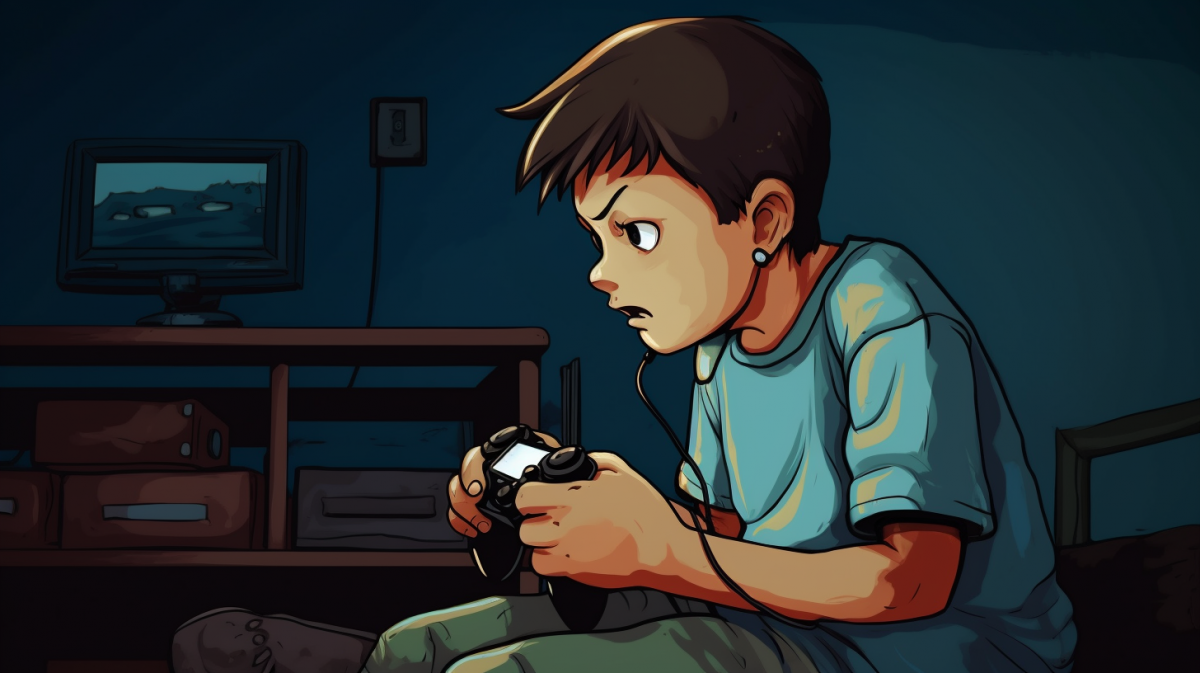
Carla: Oh no. Ya gotta use some Mom strategy. Pick the right games, in the right amount, and come up with a plan.
Miranda: Ugh, sounds like work.
Carla: Not really. it’s Easy. I put together a full plan. Spent a lot of time doing the research and figuring it out. I can walk you through it if you want?
Miranda: Wow, that would be great. If I could help Jake out and let him have some fun too that would be a win-win. We spend so much time just struggling through homework time.
Carla: No problem. I’ll give you the full plan. All my tested Mom strategies. The first thing you want to do is watch this quick video. It’ll give you a rundown of all the best video games and how they help. Armed with that knowledge you’ll be a lot better off.
Miranda: I really appreciate your help, Carla.
Carla: No problem. Us Moms have got to stick together. So let’s watch this video and then after that, I’ll give you my whole plan.
Hey Folks, did you know that there’s research that shows that video games can improve reading skills?
There are a couple different ways so let’s go over those and I’ll give you some example games that fall into each category.
First there’s visual attention and visual tracking. Visual attention is the cognitive process of selectively focusing on certain stimuli and ignoring others. It can affect reading in numerous ways, including improving comprehension, recognizing patterns, and understanding the relationship between words and images. Visual attention can also help readers to quickly identify key points and ideas, as well as to remember what they have read.
Visual tracking is the ability to visually follow a line of text from left to right, top to bottom, and vice versa. It affects reading by allowing readers to quickly and accurately move through a text. Good visual tracking skills enable readers to take in more information at once, which in turn allows them to comprehend and remember more of what they have read. Poor visual tracking can lead to difficulty in focusing on the text, as well as difficulty in understanding the material.
Here are some games that may improve visual attention and visual tracking.
1. Fruit Ninja
2. Pac-Man
4. Pinball
7. Ski Safari
9. Crossy Road
10. Flow Free

Games That Improve Information Processing Speed
Next is information processing speed. Information processing speed is the rate at which a person can take in and process information. It affects reading by determining how quickly a reader can read, comprehend, and recall information. A person with good information processing speed can quickly take in and understand new information, while a person with poor information processing speed may have difficulty comprehending and recalling what they have read.
Here are some games which may improve information processing speed.
2. Call of Duty
3. Halo
4. Portal
6. Tetris
7. Rock Band
10. Angry Birds
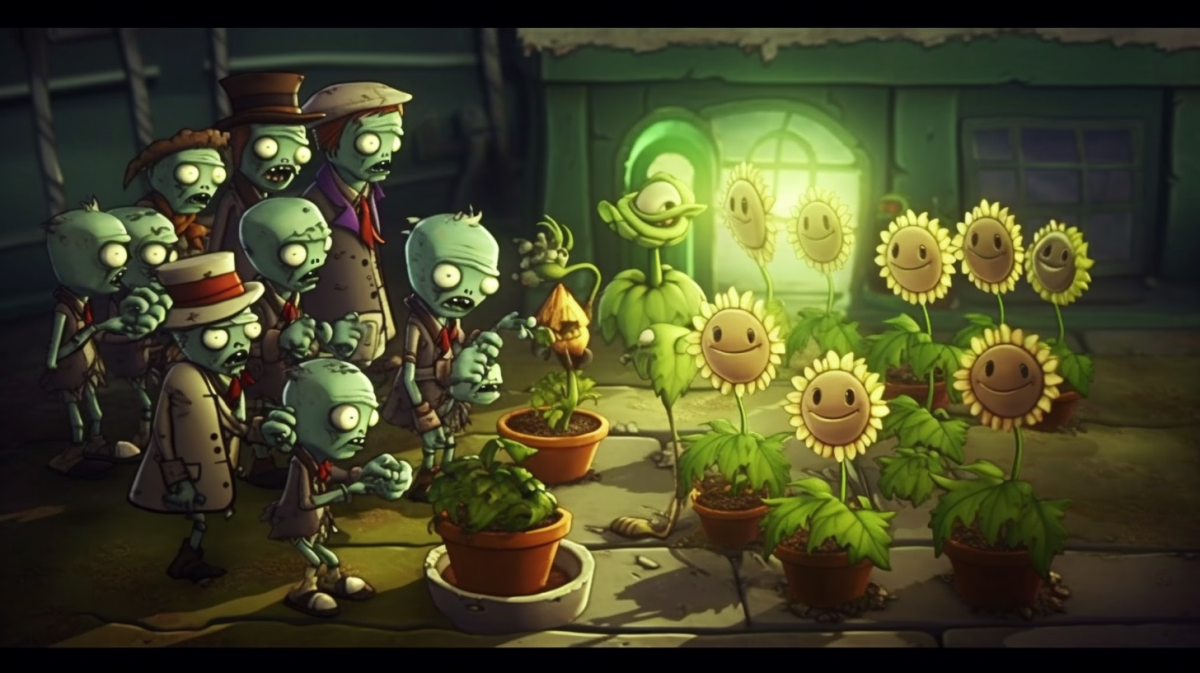
Then there are action games that flash on-screen text. Games that flash text on-screen can help improve reading by increasing the speed at which a person takes in and processes information. This can help readers become more efficient, as they learn to identify keywords and phrases quickly and accurately. Additionally, these games can help improve visual tracking skills, as readers learn to quickly and accurately follow text from left to right and top to bottom. Finally, these games can help readers become more comfortable with reading, which can lead to improved comprehension and retention.
Games like
1. Overwatch
2. Call of Duty
3. Fortnite
8. Halo
9. Tekken
10. Mortal Kombat

Then, of course, there are games that have reading as a part of the gameplay.
Some examples are:
1. Word games such as Scrabble and Bookworm
2. Text-based adventure games such as Zork and The Hitchhiker’s Guide to the Galaxy
3. Visual novels such as Phoenix Wright: Ace Attorney and Zero Escape: Virtue's Last Reward
4. Role-playing games such as Final Fantasy and The Elder Scrolls
5. Strategy games such as Civilization and Total War
6. Puzzle games such as Tetris and Lumines
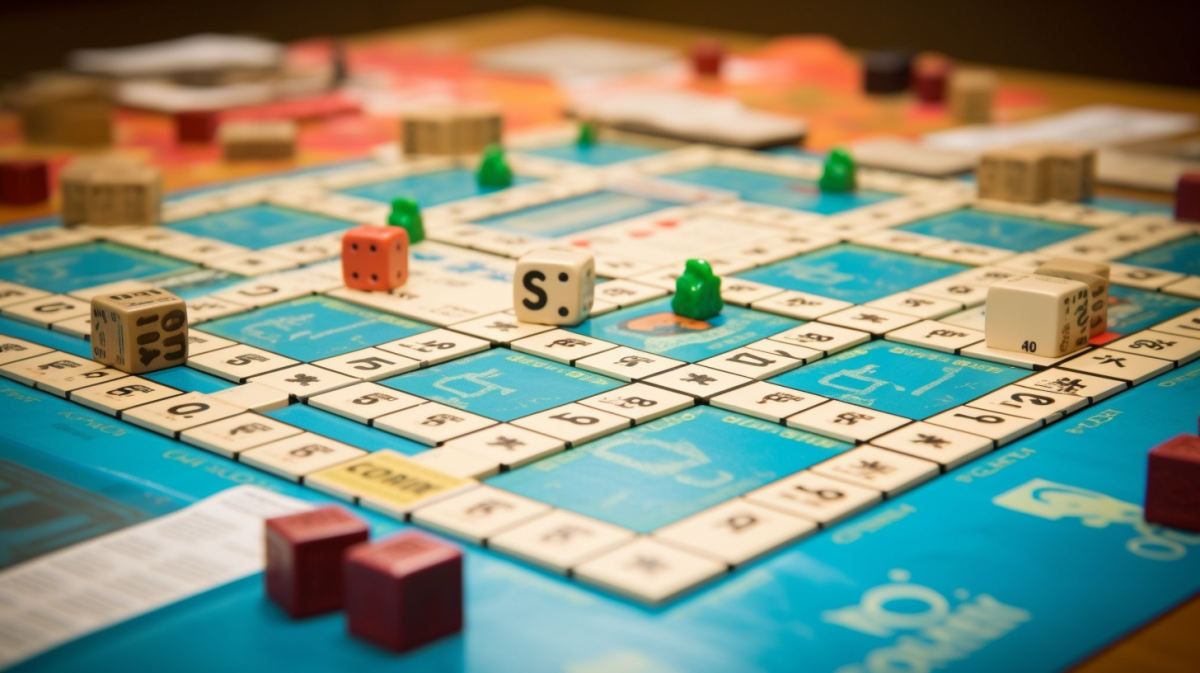
And last but not least are video games that are actually designed to improve vocabulary, fluency, and reading comprehension.
Games like:
1. JumpStart Adventures 3rd Grade
3. SpellTower
4. Word Drop
5. WordSpree
6. WordCookies
7. Math Blaster
8. Dragon Box
9. BrainPop Jr.
10. Reading Eggs
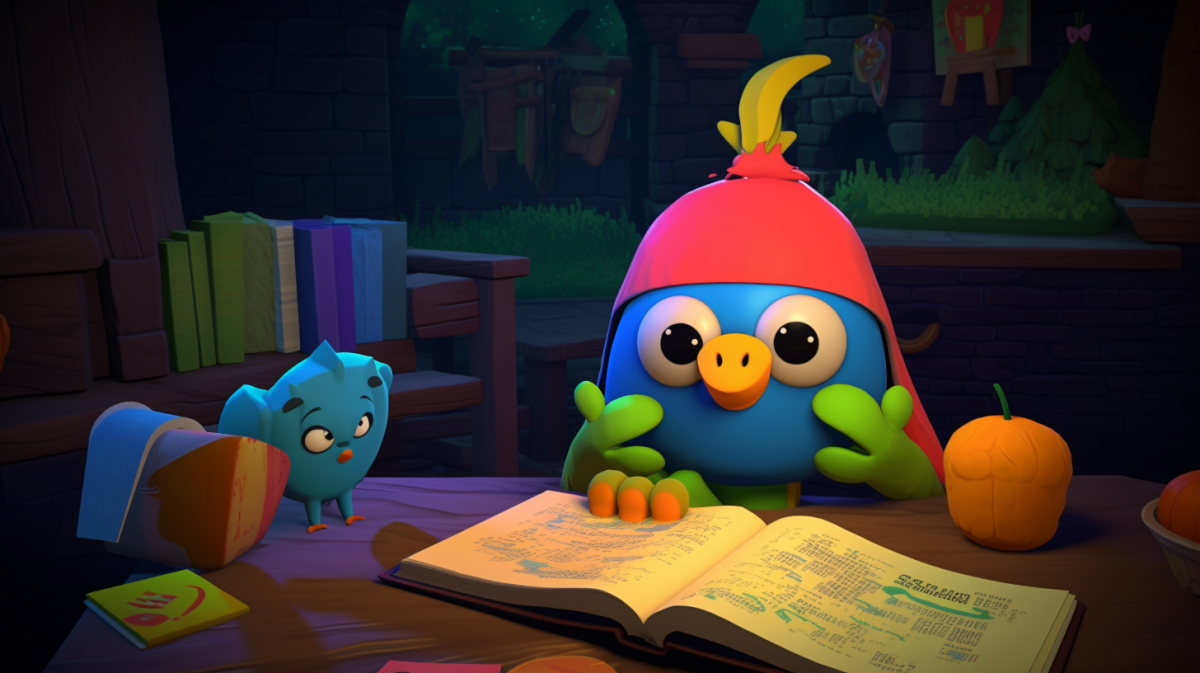
Miranda: Wow Carla. I had no clue. I was just forcing Jake to study more. And the more I did the angrier he got. Glad I didn’t trash that PlayStation.
Carla: Right. You can use it as a Mom tool.
Miranda: So what’s that plan of yours?
Carla: Got your notepad ready?
Miranda: Yep. Ready to go. Let’s have it.
Carla: Okay. First. Keep that information I already gave you a secret. You don’t want Jake using is against you.
Miranda: Smart. Got it.
Carla: Ok the first step is to know where you are at. Assess Jake’s reading speed. I’ll give you a link to an easy test you can use.
Miranda: Noted
Carla: Next assess reading comprehension. I’ll give you a link for that too.
Miranda: Yeah comprehension is a big problem for Jake
Carla: Yes, it’s important to know where you are at because the most important part of improvement is noticing the small improvements. Noticing the little things is the secret. It’s motivating and keeps things moving along. If you don’t, all you see are the problems that get you going nowhere.
Miranda: Yeah that makes sense. I get so frustrated all I can see is how far behind he is. I can see that I am focussing on the wrong things
Carla: Yep. You get what you focus on.
Miranda: Well all Jake gets is more bad grades. I’m going to have to change my focus
Carla: And his. This plan will do both.
Miranda: Ok I’m in. Tell me more.
Carla: The next thing I did was sign up for the Learning Success System. It’s a program that builds up all those fundamental skills needed for reading, and all learning. It’s super easy. They send you an email every day with a quick lesson in it. Takes about 15 minutes a day. I’ll get you that link too.
Miranda: 15 minutes? I can do that.
Carla: Yep, totally worth it. Makes everything easier.
Miranda: I’m into easy. This has been so hard.
Carla: Yeah I know. I was there too. Okay so next thing is to set a reading goal. How much do you think Jake should read each week. Start small. Make it easy and you’ll increase the goal as you go along. You just don’t want to overwhelm him. He’s already frustrated.
Miranda: Yeah that’s all we seem to feel is overwhelm and frustration.
Carla: Yeah I get it. The next thing is you want a chart. You can use a calendar or make a chart. Just make something that is visual and you can put it somewhere where everybody sees it.
Miranda: Got it. I know just where it’s going. Right where the snacks are.
Carla: Great. Next set up a reward system. Let him earn his video game time. But, here’s the catch. Separate the video games into categories. Maybe action games, role-playing games with text, and educational games. Then he earns a little of each when he reaches his daily goal. He can go use it or he can save it up. Totally up to him.
Miranda: Earning game time. Now that’s an idea.
Carla: Yes earning game time has a lot of benefits. You never have to nag him about playing to much. You just say “Sorry dude, you haven’t earned it yet”
Miranda: Hmmmm. Yeah, seems like I always have to nag. I’m liking this.
Carla: Yes, it always teaches him the concept of earning the things he wants. That’s important.
Miranda: Got it. You’ve got me thinking about a lot.
Carla: Next setup bonus rewards. Like if he meets his goal every day for a week he gets an extra 30 minutes of play time. Something like that.
Miranda: So cool.
Carla: Make sure to constantly communicate with him about the plan. And if you phrase it in a way that develops a growth mindset that's even better.
Miranda: What’s a growth mindset?
Carla: That’s when you always phrase your compliments in a way that they are focused on effort. So, for example, instead of saying “Jake, your getting so much better at reading, your so smart” Say something like “Jake you are getting so much better at reading, you have worked so hard, I’m proud of you”. That works because the effort is always under his control. Smart, is not. It not only motivates but it also teaches him that he can do anything if he just works hard.
Miranda: Carla you are a SuperMom. You are so smart.
Carla: No, I worked at it. Remember. Growth mindset.
Miranda: Oh that’s right. I’ll practice that.
Carla: Great! And if you think Jake might have some underlying learning struggles, like dyslexia, dyscalculia, or dysgraphia check out this video too.
Miranda: I don’t even know what those words mean. But I’ll work on my plan and watch that video too.
Carla: Watch out! You're going to be a SuperMom too!
Miranda: I sure hope so
Carla: You already are. You just didn’t know it yet.
Key Takeaways:
More About A Growth Mindset
To foster a growth mindset you must emphasize effort and hard work. This means praising your child for the time and dedication they put into reading or any other task, rather than their intelligence or abilities. Encourage them to take risks so that they can learn from mistakes, rather than being afraid of failure.

Why is a Growth Mindset Important?
A growth mindset is important because it helps children to realize that they can become better at any task if they put in the effort. It teaches them perseverance and resilience, which are skills that will help them throughout life. It also encourages risk-taking since your child will feel secure enough to make mistakes without being afraid of failure.
Strategies for Improving Reading Speed
There are a few strategies you can use to help your child improve their reading speed. Set a goal and chart progress, break bigger texts down into smaller chunks or summarize each section, practice using flashcards with difficult words or concepts, read out loud, and keep track of their best times for completing passages. There’s no one-
Improving Reading Speed:
Parents can help their children improve their reading speed by having them read aloud, which will not only help with comprehension but also increase fluency in reading. Parents should also encourage students to practice chunking words when reading, which is breaking larger words down into smaller parts and then reading those pieces in one go. Finally, tracking progress by having kids measure how much they can to read per minute.
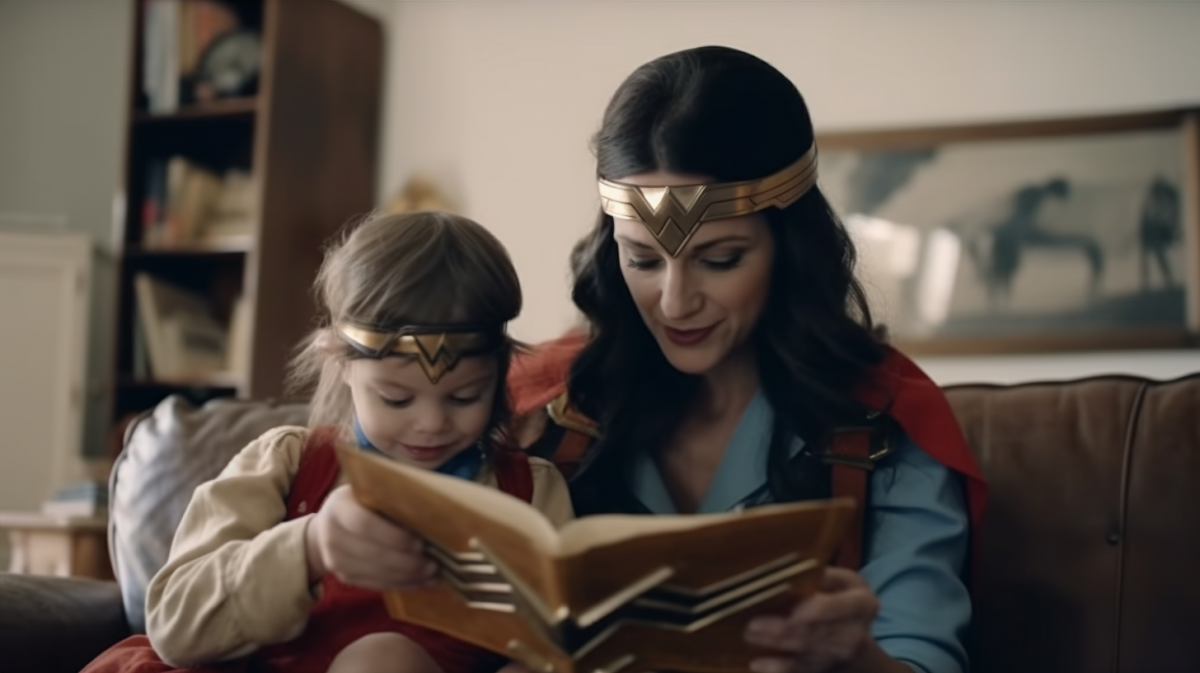
Realistic Expectations
Realistic expectations for their child and remain supportive throughout the learning process. Children who feel pressured or criticized for their academic performance are less likely to be motivated and may struggle even more. On the other hand, children who receive positive reinforcement, encouragement, and support are more likely to feel confident and motivated to continue learning and growing.
A Positive Learning Environment
Children also need a positive learning environment to thrive. This means providing ample opportunities for them to practice and learn new skills, fostering open communication with teachers and other school staff, as well as creating an atmosphere that is interesting and encouraging. For example, parents can provide their child with activities that incorporate fun and educational games, videos, or apps to further engage their learning experience.

Learning Disabilities & Video Games
Parents should also be aware of the potential benefits of video games for children with learning disabilities. While not all video games are suitable for kids with learning disabilities, certain genres like puzzle-solving and strategy games can help improve focus and concentration skills while offering an entertaining break from traditional academic tasks. Educational video games can also help children with learning disabilities practice math, reading, and other skills in a fun and engaging way. Furthermore, video games that feature enhanced visuals as well as audio elements can be used to help kids with visual or hearing impairments learn new concepts more easily.
Overall, parents should strive to create an environment that is conducive to their child’s learning needs. This includes setting realistic expectations, providing the right tools for success (such as flashcards or educational apps), offering positive reinforcement and support, and being aware of the potential benefits of video games for those with learning disabilities. By doing so, parents can help foster a growth mindset in their child which will ultimately lead to increased reading speed and improved academic performance overall.
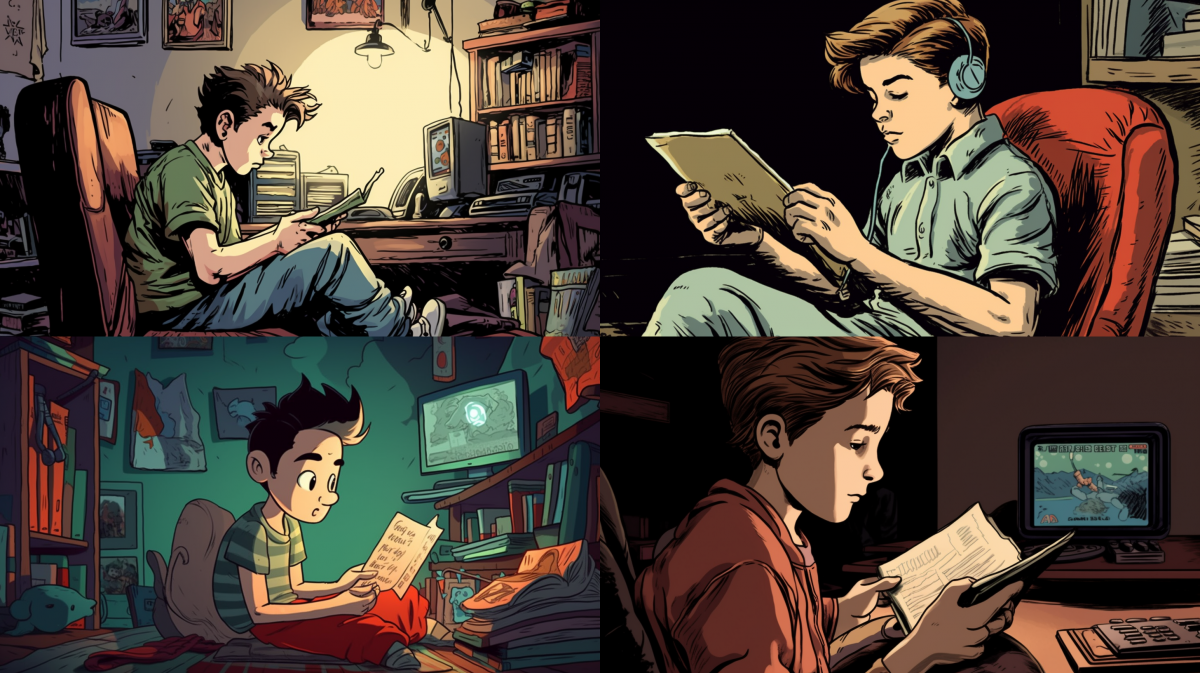
If your child is struggling in reading then the Learning Success System is the answer.
Discover the power of the Learning Success System and help your child overcome specific learning disabilities such as dyslexia, dyscalculia, or dysgraphia. Our do-at-home educational therapy program offers simple, exciting activities that improve cognitive micro-skills, visual and auditory processing, and more. With just 15 minutes a day, you can help your child build the confidence, grit, and focus they need to excel in school and in life. Try our FREE trial today and see the difference for yourself!
“Is your child having difficulty with reading or other academics?” “Wondering if it’s dyslexia?” Use our free dyslexia test to get answers. Simply answer a few easy questions and find out now
You can get this analysis for free by filling out this simple form. This will help you get to the bottom of a learning difficulty and provide you with a solution. If you are ready to put this problem behind you click the button below and fill out the form.










